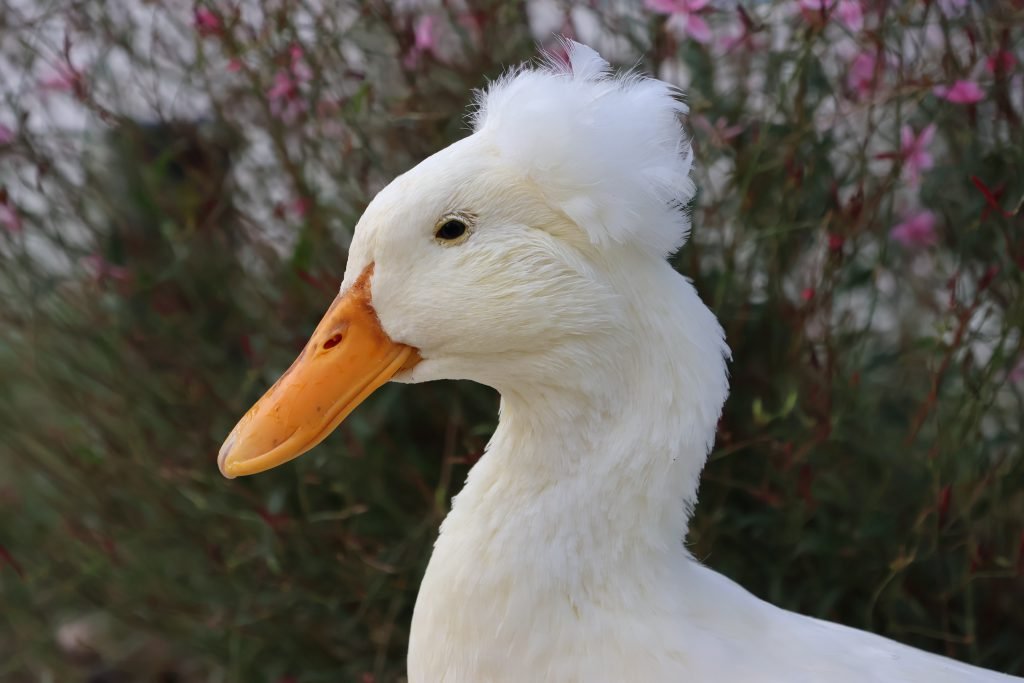Last updated on July 16th, 2024 at 06:29 pm
This is the story of our pet duck Simon and his prolapsed penis.
If you want to read more about prolapsed phallus in ducks, what causes it, and how to treat it, you may want to read our other blog post: Prolapsed Phallus (Penis) in Pet Ducks
Disclaimer: I may earn a commission if you purchase products or services through my affiliate links. This does not affect the price you pay, and it helps me to continue creating content for you. I only recommend products and services that I believe in and that I think will be helpful to my readers.
How I noticed my duck had a prolapsed penis
One afternoon, I noticed that the penis of our drake Simon was hanging outside longer than usual. The ducks were free-ranging like every day. Our flocks enjoys foraging, looking for bugs, or swimming in their small pond.
We have six ducks and one drake. And since our Simon is a young drake at his best age, he is very sexually active and mates with his girls multiple times a day. It is not unusual to see his corkscrew-shaped penis hang out shortly after he had fun with one of the girls. However, it usually retracts within 5 to 10 minutes. Not this time. I monitored him closely, but he wouldn’t pull it back inside.
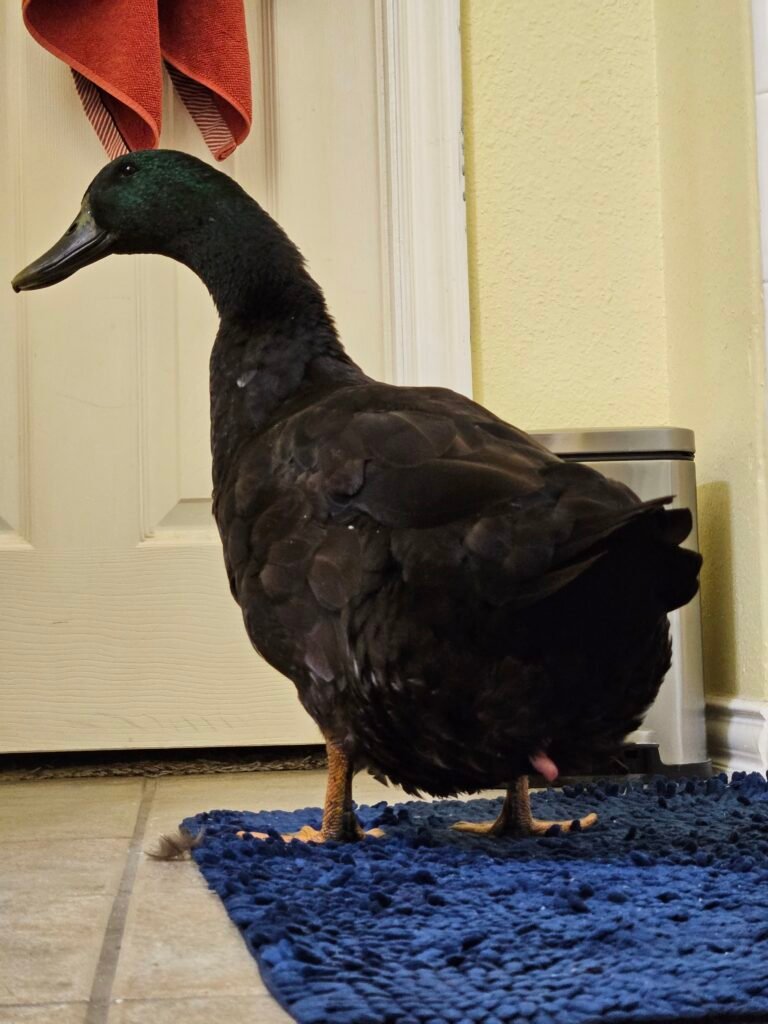
I was worried because I had read about this condition before. When not treated, this can lead to infection and, in severe cases, to necrotic (dead) tissue.
What We Tried First to Help our Prolapsed Drake
After a few hours, I brought him inside the house. I made him a bath with fresh, cold water. This can sometimes help to reduce the swelling. He was swimming for one hour or so, but nothing changed. His wienie was still hanging there.

Next, I used personal lubricant. I have lubricated his best part and attempted to push it back inside. That worked only for a few minutes until it fell out again.
We kept him inside the house during the night. I wanted to give him some rest in the hopes that he would relax enough and would be able to retract his phallus. We have our small intensive care unit, namely a playpen.
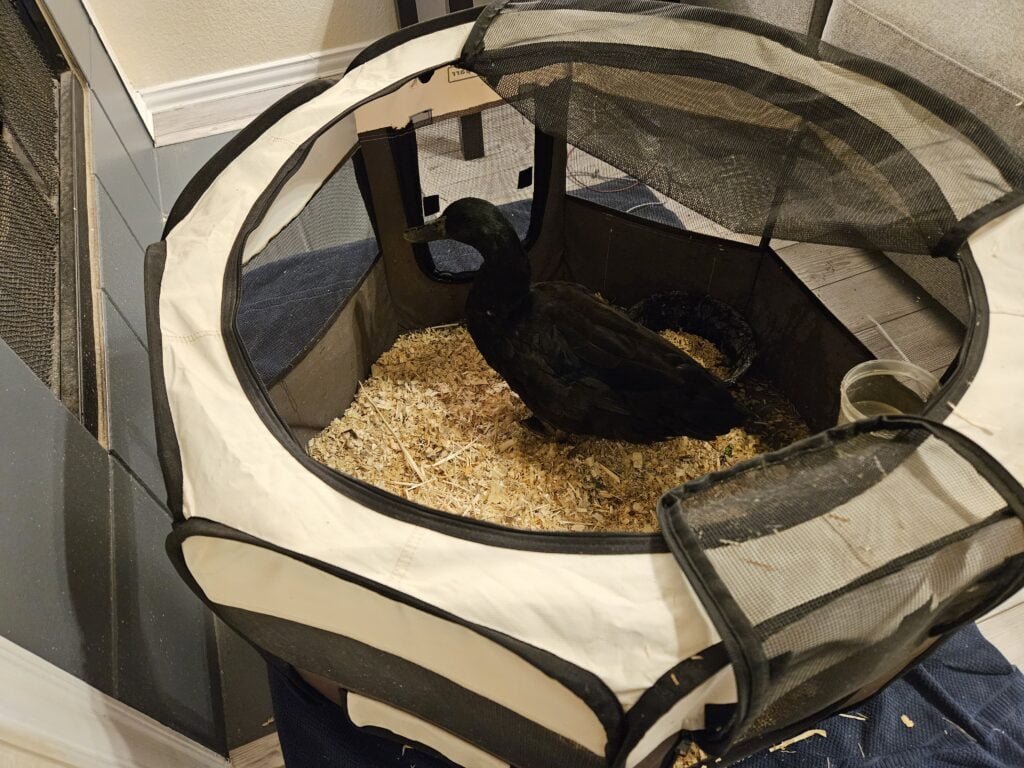
I added triple antibiotic ointment to his penis to help it heal and to (hopefully) prevent an infection.
The Second Day With Prolapse
There was no change the following day. We allowed Simon outside, but we separated him from the ladies. I wanted him to have company and access to clean swimming water. I was checking on him regularly, but he was still hanging there.
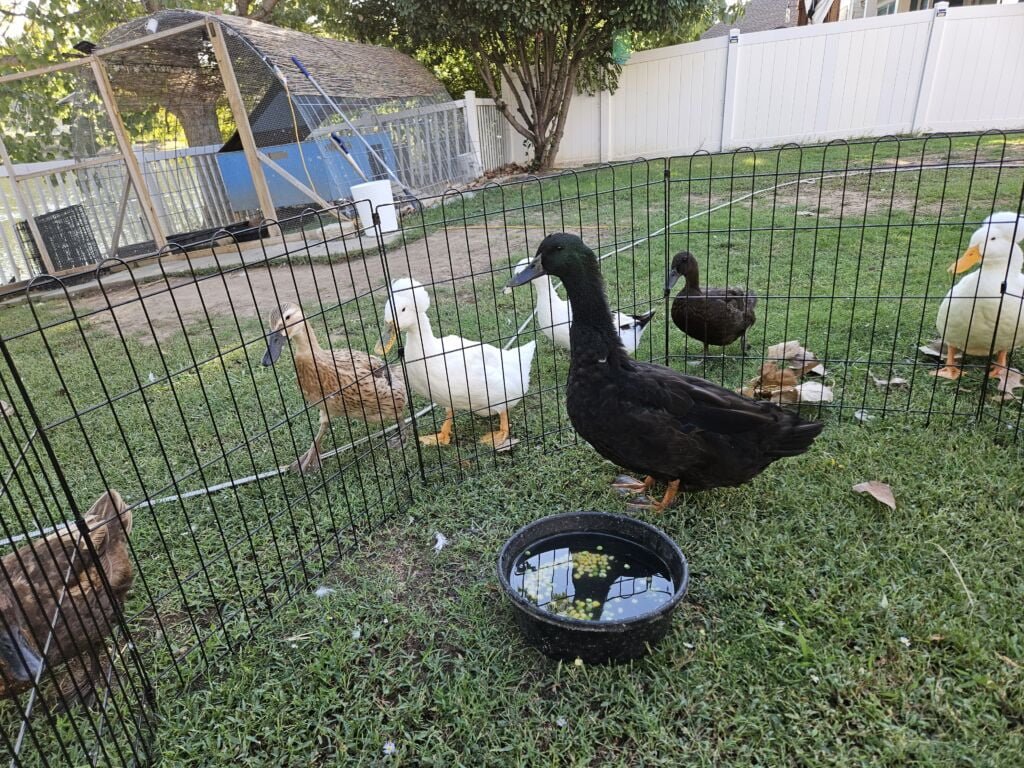
I noticed that the tissue became more reddish and also a bit dry. So I brought him back inside and kept it lubed. And then I called our avian vet. They recommended taking him to the emergency vet clinic, which I did.
The Emergency Vet Clinic
We do not live in a very central area, and the vet clinic is about one hour away. I put Simon in the crate and drove there. After signing some paperwork and waiting for ages, they told me that they recommended pushing it back inside and securing it with a few sutures at the cochlea. The procedure needed to be done under anesthesia. But since they were busy, and Simon was not an emergency, they said that it could take a few hours until they would start the procedure. So I drove home in the meantime.
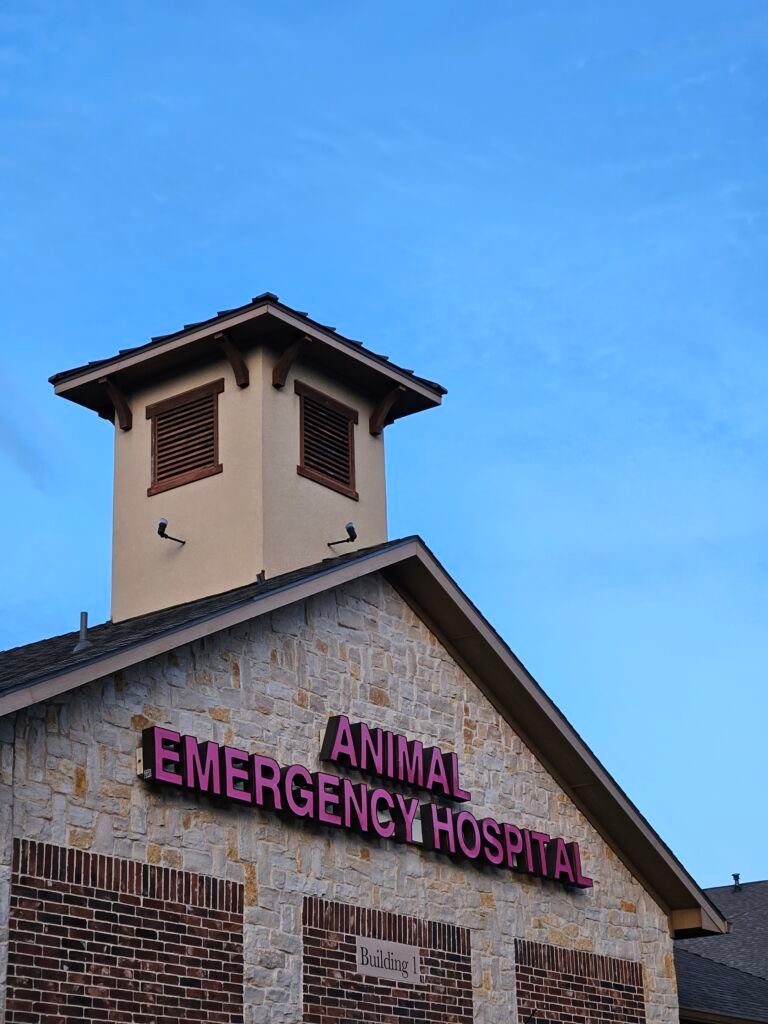
A few hours later (around midnight), I received the call that they were almost done with the procedure and that I could come to pick him up. I was relieved about the call and that he did well with the anesthesia. This can always be a bit risky for ducks.
The procedure was not cheap; we paid about $700. That included the initial consultation, the “surgical” procedure, including anesthesia, and the antibiotics they gave us for the next seven days.
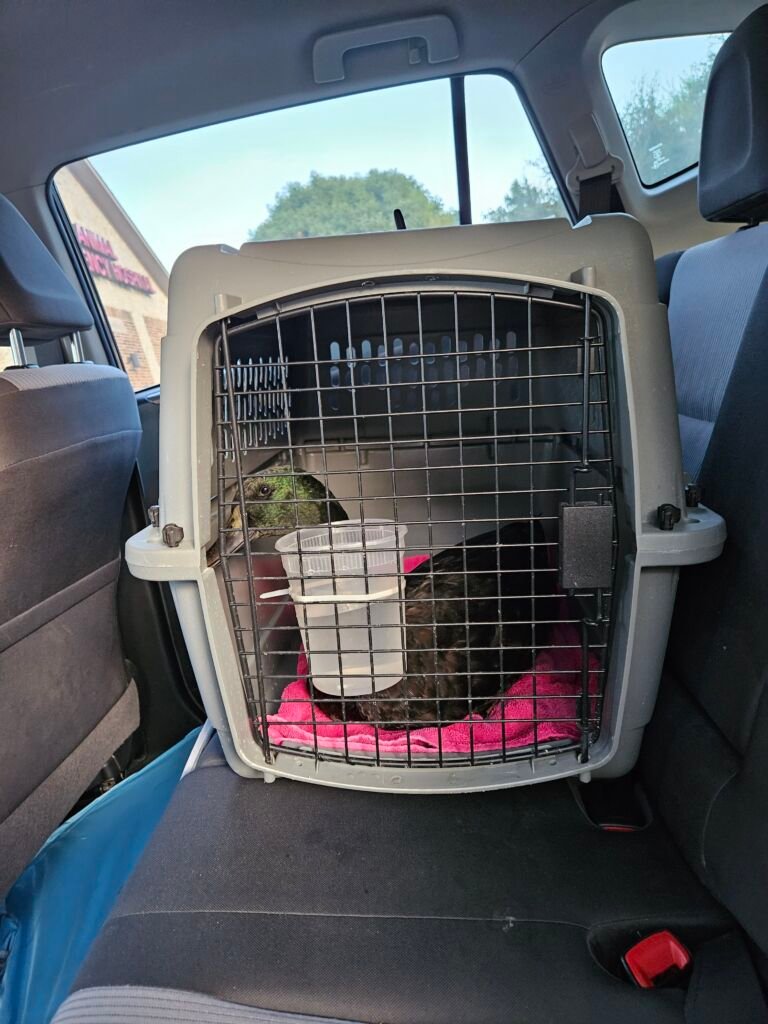
Poor Simon was very groggy, and so we drove home. Once at home, he came out of the crate. He pooped, and his penis came out again. That was very frustrating because the sutures were supposed to keep it inside. And we just paid $700 for nothing.

I called the clinic again, but they said this could happen and we could return or see our regular vet the next day instead.
Avian Vet and the Second Surgery
As suggested, we called our avian vet (Summertree) the next morning and were lucky to get an appointment for the same day. After they checked Simon, they suggested that we should amputate his phallus. It was very likely that a second round of stitches would only fail again. We didn’t want to have too many procedures with full sedation every time. They also mentioned that this could become a chronic problem. If this happened once, it could happen again in the future. So we decided to go this route and to get his best part removed. They assured us that he will probably not even realize it is missing and will still enjoy mating his girls.

They had time, so they performed the procedure immediately, and we could take him home after he woke up from the anesthesia. Oh, and of course, that was another $655. Ducks are expensive, as you can see.
They prescribed anti-inflammatory meds (Meloxicam) in addition to the antibiotic (Septra Suspension) we already had for him. That should help to reduce the swelling and to keep the pain at a minimum.
Recovery from the Phallus Amputation
We needed to keep Simon confined indoors for 2-3 days after the procedure. So we kept him inside in his private playpen. We also made him a small run so he had more room.
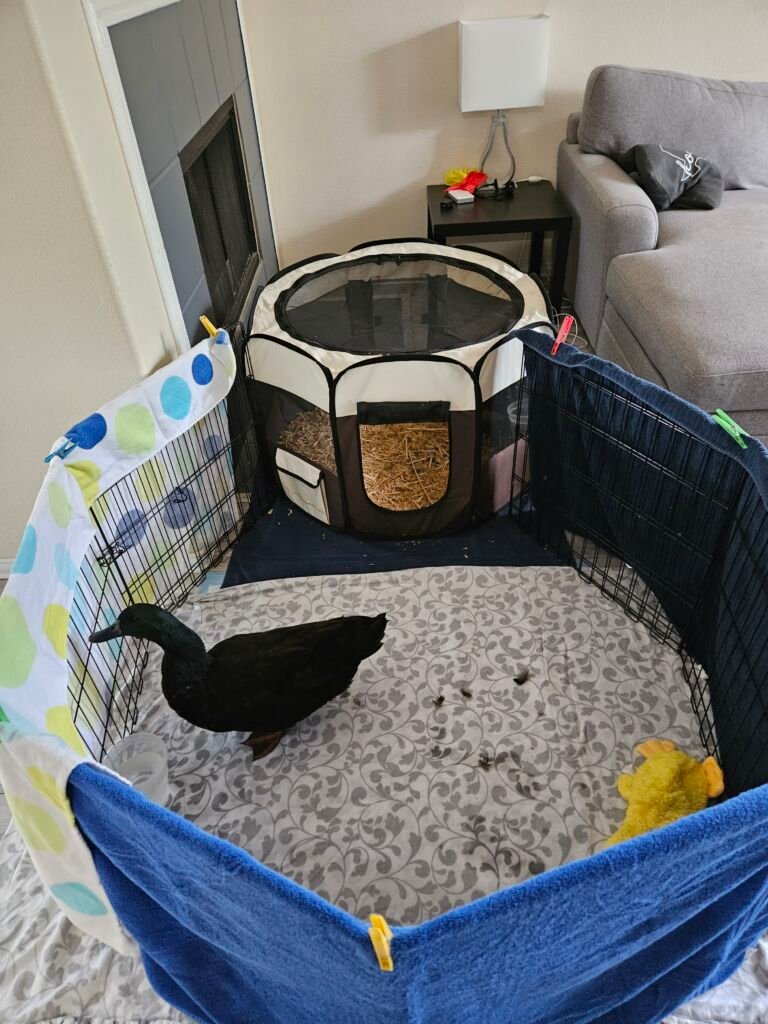
He was not allowed to swim for the first 3 to 5 days. That was the most challenging part…keeping ducks out of water is almost impossible. He would always try to bathe in his water bowl. After that, he could swim in clean water. So he got to use our bathtub again.
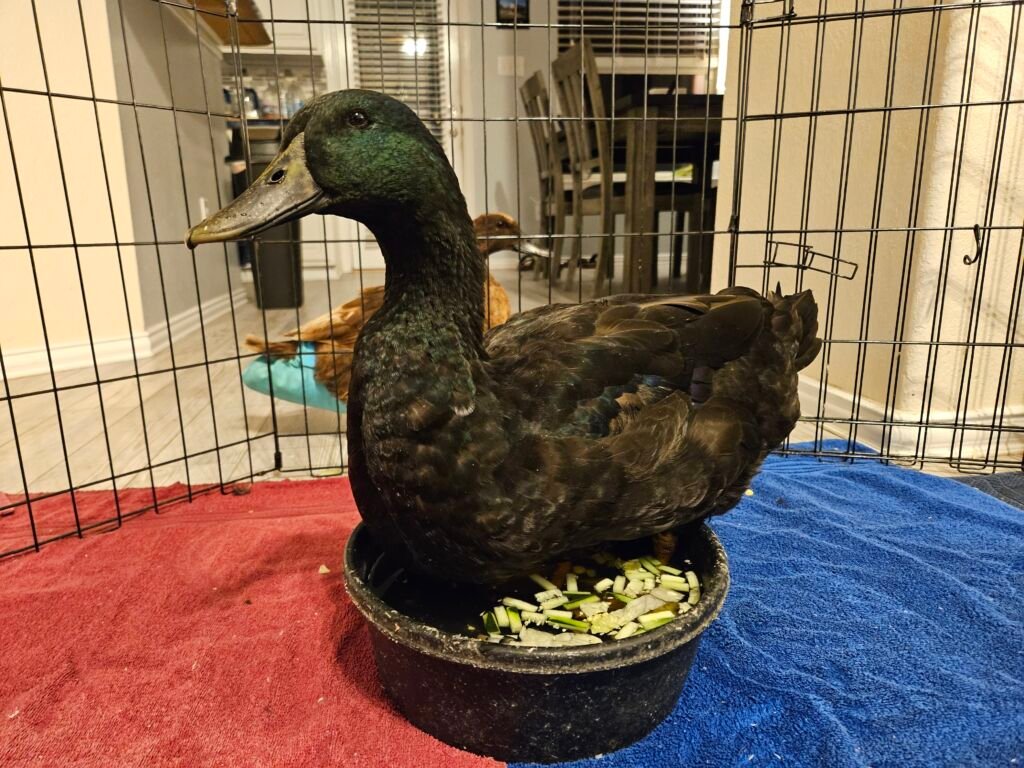
He was also not allowed to have direct contact with the girls for 7 to 10 days to help prevent re-engorgement of the phallus.
Simon was very depressed and refused to eat. Not even his favorite treats, so we started force-feeding him baby food. Please do this only if you know how. If you do this wrong, you could accidentally put the food down the trachea, and your duck can aspirate.

He lost a lot of weight. We have a baby scale at home and monitor his weight closely. Altogether, he went down from 2.7 kg to 1.7 kg.
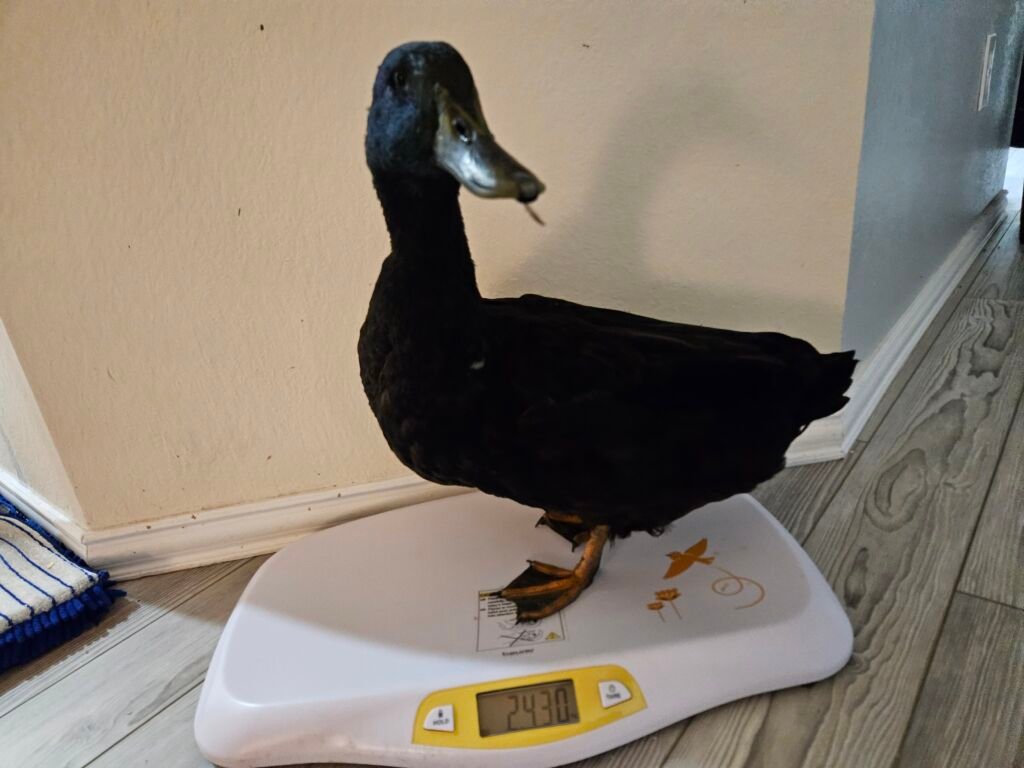
He also had some trouble pooping. His phallus base was kinda stuck inside the sutured cochlea. I was gently pushing it in multiple times a day, but whenever he pooped, there was a lot of pressure, and it came back out. But since he was only drinking (he drank a lot), his poop was very watery.
We saw the vet again to double-check that nothing else was happening with him. But all was fine. They gave us some critical care food that we were syringe feeding him for the next days so that he would get the proper nutrition and all the minerals needed. In addition, we gave him nutridrench and electrolyte water (hydro hen).
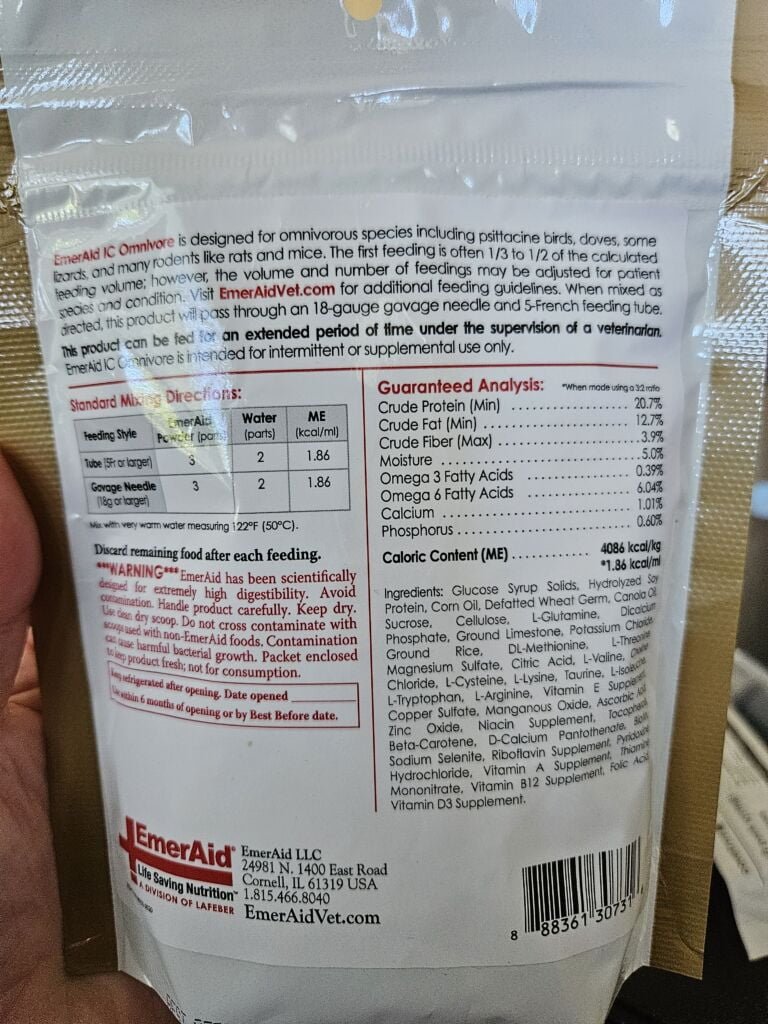
Simon is Slowly Getting Better
Simon was likely depressed because he was isolated from his girls. Ducks are very social, and he missed his flock. After five days, we allowed him to be outside for a few hours daily in his own area. That way, he could see and hear his girls without direct contact.
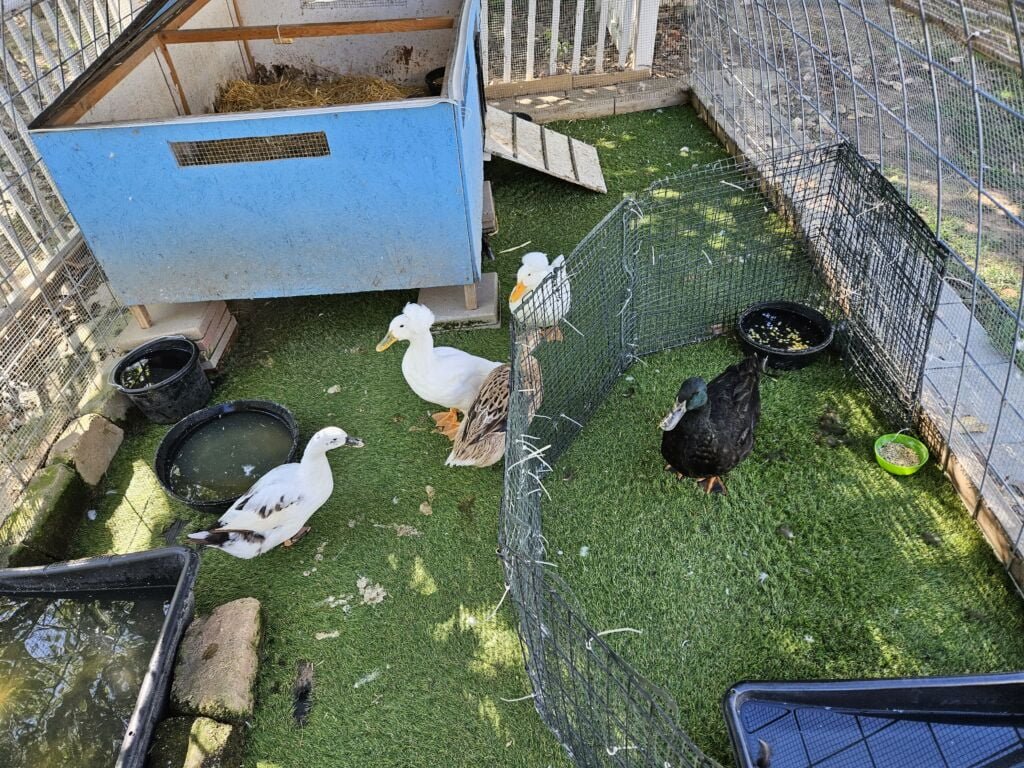
His mood started to get better. Eating was still a challenge. But he would eat earthwork that I was digging up for him. I was happy about the small successes. Every day, he would be a bit better. And he would eat a bit more on his own.

Ten days post-surgery, he was sleeping outside in the duck coop. We made a small area beside the girls just for him alone, like a bachelor pad.

After 14 days, he got his sutures removed. After that, we allowed him to be with his girls again 24/7. He was so happy! And he started to eat much better again. And gained his weight back.
By now, he is back to his old self. He also started mating again. But he is not as active as he was before. But this could also be because it is fall. Let’s see how he is doing in spring.
If you want to read more about prolapse in male ducks, please continue reading our article Prolapsed Phallus (Penis) in Pet Ducks.

